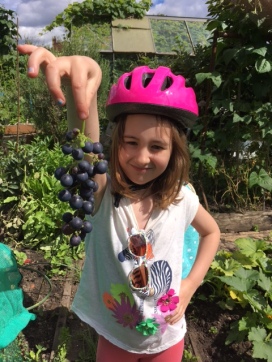
(Me with my sister. Because grief is the price we pay for love)
Brave. Positive. Strong. Inspiring. These are just a few words used to describe people who have lost someone they love in a tragedy.
In the thirteen years since my sister died, grief has indeed made me stronger, kinder, more compassionate,and less likely to sweat the small stuff.
But grief can also make you a total arse. And that’s something that we don’t talk about.
My sister Helen would have been 30 this week, and I’m finding it hard. Partly because 30 is so much older than 16- the age she was when she died- but still so young. Partly because I think of all the things she would be or might be doing- I had a child by the time I was 30 (but then, ‘would be’ doesn’t exist for her; there is no parallel universe, she just isn’t here). And partly because it’s just wrong, isn’t it? To take flowers to a grave for a 30th birthday instead of celebrating with her.
And so I find myself experiencing again all the ways that grief makes me into an arse. It’s like some twisted version of the seven dwarves, but with extra unpredictable outbursts:
I’m Bitchy. I have sour thoughts. If you post a lovely Facebook post about how much you love your sister, I will pull a face at the screen. I have very little tolerance for people being whiney, people being self-pitying, and people in general.
I’m Lazy. At these times, I basically want to be in bed, or in the bath, or on the sofa. I don’t want to think about what to make the kids for tea. I don’t want to move, really. There have been days when I have done approximately ten minutes work, and spent the rest of the time googling my sister’s name, and ‘top ten saddest poems ever’.
I’m also sometimes Boozy (because being comfortably numb seems so appealing until you are two G&Ts down and wailing ‘I CAN’T GET AWAY FROM MY OWN HEAD’ at your poor partner), Greedy (because it’s possible to eat your feelings in the form of four Dairylea triangles and five slices of salami straight from the fridge), and simply Crazy.
None of this is dignified or inspirational, but it is the reality for me when grief rears its ugly head- and I can only imagine that it is for others too.
We do most of this behind closed doors, with occasional seepages of public embarrassment, when a song surprises us in a shop, or the back of a stranger’s head tricks us for a second on the street. Because we know instinctively that the world at large wouldn’t be comfortable with the ugly face of grief. And that’s understandable. It’s human to want to reassure ourselves that everything is OK. That death- something we fear so much as a society that we feel profoundly shocked when an elderly celebrity dies- can be mastered, and grief overcome: anger, denial, bargaining, depression, acceptance, done. We want to know that those left behind can survive and thrive and be happy. And that when they are sad, they weep in a dignified manner, with lovely candles.
And those left behind do survive. We thrive, and we are happy, and we grab onto the good. We grow and learn and occasionally we are dignified (though to some of us it does not come naturally). And we do have lovely candles.
But we’re also, sometimes, great scrawly messes of badness and yuck and snot and tears. We snarl and sulk and eat all the things. We are sullen and shallow (retail therapy is a real thing, believe me) and we are bad company. Because grief sometimes just sucks.
I write these posts in the hope that someone who is going through it- perhaps someone who has not been walking this road as long as I have- might read. What I want to say to them is: it’s OK to feel crap, to be crap, when you are grieving. Even when years have passed and an anniversary or a birthday kicks you in the guts. It’s OK to be a mess. It’s also important to do the things to help you out of the hole (‘self care’, I believe the millennials call it)- for me this is exercising, watching GBBO, listening to comedy podcasts, cuddling my kids, reading Bridget Jones Diary for the hundredth time. But it’s also OK to be in the hole for a while. Not just OK, but a necessary and a healthy part of grief.
There’s nothing to be done but what Bridget herself does after losing Mark Darcy- to Keep Buggering On. It won’t seem so bad tomorrow. And if you really disgrace yourself- it’s not your fault, right? Grief made you do it.








